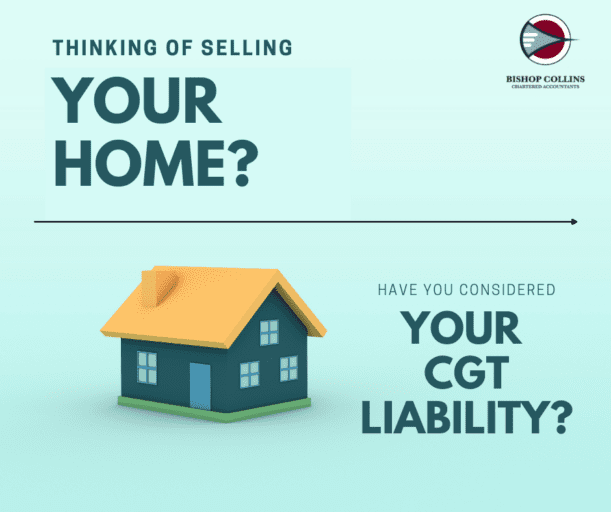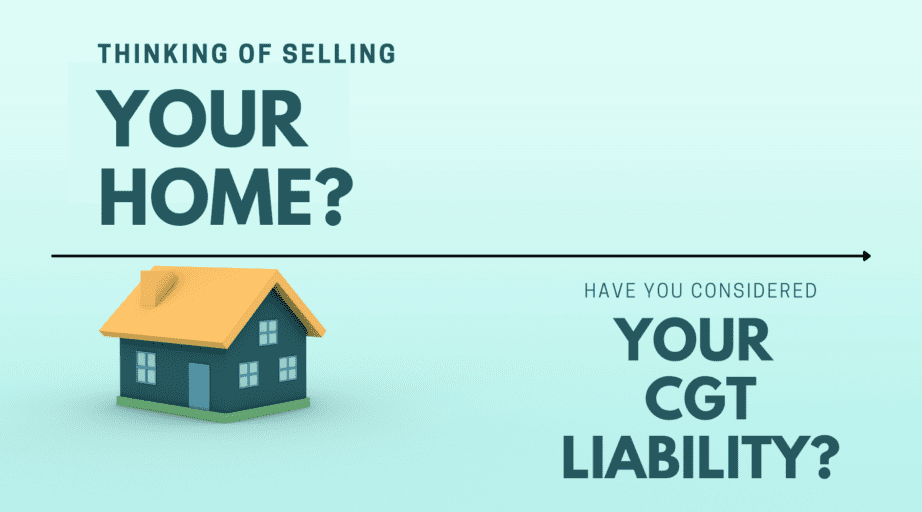
Juston Jirwander
Director
Capital Gains Tax (CGT) on your home or business is one of the most important aspects of CGT you should be aware of, especially upon the sale of your home if you were running your business from it. Previously, we discussed ‘What is Capital Gains Tax’ and how to calculate it.
Capital Gains Tax and the Family Home
Your ‘main residence’ (your home) is generally exempt from capital gains tax (CGT). To get the exemption, the property ;
- Must have a dwelling on it,
- Must have been lived in,
- Is not entitled to the exemption for a vacant block.
If you were not a resident of Australia for tax purposes while you were living in the property, you are unlikely to satisfy the requirements for the main residence exemption.
Foreign Residents of Australia
If you are a foreign resident when a CGT event happens to your residential property in Australia, you may no longer be entitled to claim the main residence exemption.
From the 9th May 2017, new rules for foreign residents have been in effect regarding CGT on your home. Foreign residents, for tax purposes, will no longer be able to claim the CGT main residence exemption when they sell property in Australia unless certain circumstances apply.
Foreign residents for tax purposes who already held property on 9 May 2017 will be able to claim the CGT main residence exemption if the CGT event (disposal) of the property occurs on or before 30 June 2020.
For property acquired at or after 9 May 2017, you will no longer be able to claim the CGT main residence exemption from that date. That is unless certain life events occur within a continuous period of six years of you becoming a foreign resident for tax purposes.
When is a dwelling your main residence?
Generally, a dwelling is considered your main residence if:
- You and your family live in it
- Your personal belongings are in it
- It’s the address your mail is delivered to
- It’s your address on the electoral roll
- Services such as gas and power are connected.
The CGT main residence exemption is not based on one of these factors alone. The weight given to each varies, depending on individual circumstances. Other considerations are the length of time you stay there and your intention to occupy it.
You’re eligible for a full main residence exemption if the dwelling:
- Has been the home of you, your partner and other dependants for the whole period you’ve owned it
- Has not been used to produce assessable income – that is, you’ve not run a business from it, rented it out or flipped it
- Is on land of two hectares or less.
If the full exemption applies, your capital gain or loss is disregarded. You don’t pay tax on any capital gain, and you can’t use any capital loss to reduce your assessable income.
Alternatively, you may be entitled to a partial exemption.
Main residence CGT exemption
The main residence CGT exemption applies to you when you:
- Move in – a dwelling is considered your main residence from the time you acquire it if you move in as soon as practicable after settlement
- Move from one main residence to another– if you acquire a new home before you dispose of your old one, you may be able to treat both dwellings as your main residence for up to six months
- Move out– you can continue treating your old home as your main residence
- Live in a different home to your spouse or children– you need to choose which home will be your main residence
- Use your home to produce income (such as renting it out, running a home business or flipping your home) – you don’t get the full main residence exemption and may need to know your home’s market value at the time you first used it to produce income
- Build or renovate your home on land you own– you can treat the land as your main residence for up to four years before you move in, provided you move in as soon as practicable after it’s finished.
There are however some special exemptions if you move out of your main residence even if it is used to produce income ie rented out.
Generally, you:
- Can treat the dwelling as your main residence for:
- Up to six years if it is used to produce income
- Indefinitely if it is not used to produce income
- However, you can’t treat any other dwelling as your main residence for that period (except for a limited time if you’re moving to a new house).
Small business CGT concessions
In addition to the capital gains tax (CGT) exemptions and rollovers available more widely , there are four concessions that allow you to disregard or defer some or all of a capital gain from an active asset used in a small business:
- 15-year exemption – If your business has continuously owned an active asset for 15 years and you’re aged 55 or over and are retiring or permanently incapacitated, you won’t have an assessable capital gain when you sell the asset.
- 50% active asset reduction – You can reduce the capital gain on an active asset by 50% (in addition to the 50% CGT discount if you’ve owned it for 12 months or more).
- Retirement exemption – Capital gains from the sale of active assets are exempt up to a lifetime limit of $500,000. If you’re under 55, the exempt amount must be paid into a complying super fund or a retirement savings account.
- Rollover – If you sell an active asset, you can defer all or part of a capital gain for two years, or longer if you acquire a replacement asset or incur expenditure on making capital improvements to an existing asset.
These concessions are available when you dispose of an active asset and any of the following apply:
- You’re a small business with an aggregated annual turnover of less than $2 million
- Your asset was used in a closely connected small business
- You have net assets of no more than $6 million (excluding personal use assets such as your home, to the extent that it has not been used to produce income).
There are other basic eligibility conditions that you must meet to qualify for any of the concessions. You must also meet additional conditions to apply the concessions when you dispose of shares in a company or units in a trust.
You can apply as many concessions as you’re entitled to until the capital gain is reduced to zero. There are rules about the order in which you apply the concessions, any current year or prior year capital losses, and the CGT discount.
These concessions and the eligibility criteria require thorough research and consideration of the facts. We strongly recommend that before making any decisions on selling an asset, you speak to a qualified Chartered Accounting firm such as Bishop Collins to assist you.



